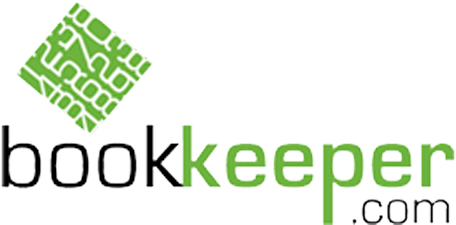Payroll outsourcing can be an easy way to save time and money. Rather than tracking and calculating employee payroll by hand or using spreadsheets, you can hire a professional employer organization (PEO), a national or local bookkeeper, or an accountant who will handle payroll for you.
Many small business owners outsource their payroll and HR functions because of how complicated and time-consuming these can be. Payroll outsourcing services will gather your employees’ information (hire date, job title, and pay rate) and time card data, calculate the amount due to each employee, calculate taxes, and then pay that amount by issuing a direct deposit or payroll check.
Features of Outsourced Payroll
Payroll outsource service providers have the pay processing expertise needed to accurately pay employees. These providers generally offer the following features:
- Payroll account and payment method setup assistance
- New hire reporting
- Wages, earnings, and deductions calculations
- Wage garnishment payments
- Tax filings, including year-end tax reporting
- Basic employee recordkeeping
- Employee and payroll data security
- Payroll compliance support
How Payroll Outsourcing Services Work
While there may be differences in how employee payments are processed based on payroll requirements, here are the steps that payroll outsource services generally follow:
- Set up payroll software with your company and employee data, including your payroll bank account and employees’ bank accounts for direct deposit
- Collect new employee information and provide state-required new hire reporting
- Request or obtain time card data (clock-in and clock-out times or hours worked) each pay period to input into payroll software
- Confirm hours worked each pay period as paid or unpaid and calculate gross pay
- Run your payroll, processing pre-tax deductions (like benefits and taxes) and post-tax deductions (like garnishments for child support)
- Make deposits to employees’ accounts (direct deposit, pay card) and mail or deliver paychecks to your office or employees’ homes
- Make payments to vendors, such as insurance companies, on your behalf
- Pay all payroll taxes, such as quarterly state and federal taxes, and insurance when due
- Provide reports to the business
When Outsourcing Payroll Makes Sense
Outsourcing makes sense for businesses that don’t have staff with the time or experience to do payroll. In small businesses, one person typically performs both bookkeeping and payroll functions. If you don’t have an accountant or bookkeeper on staff and don’t want to pay the average salary, or if you don’t have the workload to justify hiring a bookkeeper or accountant, then outsourcing makes sense.
Click the tabs below to review the benefits and disadvantages of outsourcing payroll.
Payroll Outsourcing Options
Outsourcing options can vary—from using your neighborhood bookkeeper to hiring a big-name payroll outsourcing service. The cost of outsourcing payroll can range anywhere from under $100 per month to thousands of dollars per year. What’s different about service providers is how much they do vs. how much work you do as the employer. Here are the payroll outsourcing services that businesses can use.
Professional Employer Organization (PEO)
| PROS | CONS |
|---|---|
| Takes the responsibility of payroll and HR completely off of your plate | Not the most affordable option |
| Won’t have to stay on top of changing laws and regulations | Typically can take a long time to transition on and off platforms |
| Reduced liability since the PEO becomes the employer | May not have a dedicated resource available during off hours |
| More affordable benefits for your team | |
A professional employer organization (PEO) is a co-employer, meaning you and the PEO split employment duties. You’ll manage your company’s day-to-day business while the PEO handles HR, payroll, and benefits processing.
A PEO is the best option for:
- Companies who need personalized service. If your employees have a question about their latest paycheck, they can call and speak to a dedicated team member who knows your business.
- Businesses with specialized deduction needs. If your company receives a notice to garnish an employee’s paycheck, the PEO will work on filing the garnishment under its own employer identification number.
- Businesses that want to offer competitive benefits. A PEO hires your employees and then leases them back to you. It adds your employees into a pool with its other clients’ employees to drive down benefit costs so it can offer affordable premiums.
- Companies that don’t have in-house HR and need all-in-one services. PEOs provide HR, payroll, benefits, and, often, HR consulting services. It saves you from having to hire a full-time HR, benefits, and payroll person.
Below are a few of the popular PEO options that can be a great fit for small businesses:
PEOs | Best For | Starter Monthly Pricing | Our Review |
|---|---|---|---|
 | Small businesses needing a low-cost, high-functioning PEO | $59 per employee | |
Companies needing robust integrations, HR, and IT support in their onboarding | |||
 | Small businesses seeking a highly customizable PEO solution for tackling HR and payroll tasks | Custom priced | |
 | Growing businesses wanting the expertise of a large PEO | Custom priced | |
See our top-recommended PEO companies for small businesses for more information on each provider and other high-ranking PEO options.
National Bookkeeping Service
| PROS | CONS |
|---|---|
| Can often cost less if they manage your bookkeeping and payroll | May lack personal experience working with your state/local governments |
| Managing all operations in one place can help keep finances organized and cohesive | Since remote, they may not be available during the same hours as you |
| Typically, communication is all online and can be a great option for tech-friendly businesses | May get pricey, depending on add-on services (like garnishment payments) |
The best online bookkeeping services offer both accounting and payroll services for small businesses. Having many aspects of your business managed in the same place often makes your business operations easier to track and stay on top of.
A national bookkeeping service is the best option for:
- Business operations in multiple states. A local provider may only have the expertise for the local area, but a national firm should have resources for every state. You will have access to the same services you would receive from a local firm with some extras, like year-end financials.
- Tech-forward businesses. National bookkeepers are usually remote and, therefore, most of your communication is done via the internet or over the phone, including documents you or your bookkeeper need to send to each other.
- Companies that need additional payroll services. Bookkeepers can help process garnishments or run an off-cycle payroll for year-end bonuses.
If you’re looking for online bookkeeping services, below are our top-recommended providers:
Providers | Best For | Starter Monthly Pricing | Our Review |
|---|---|---|---|
 | Small businesses looking for a wide range of bookkeeping services | Starts at $299 | |
 | Franchise and ecommerce businesses | Starts at $395 | |
 | Businesses that need assistance with invoicing and bill pay | Starts at $399 | |
 | Companies wanting assistance with QuickBooks Online | Starts at $200 | |
Local Bookkeeper or Accountant
| PROS | CONS |
|---|---|
| Can offer a more personal experience than other outsourcing options | May not have as much payroll/HR experience as other outsourcing options |
| Easier to build a good working relationship when you can have face-to-face meetings | Pricing could increase depending on the skills and qualifications of the bookkeeper |
| Experience in your personal location allows them to know state and local laws in and out | May also have to pay for additional software, such as QuickBooks |
If you already have someone managing your bookkeeping, you might want to ask them if they can run your payroll too. For example, if they’re a QuickBooks ProAdvisor, they may be able to process your payroll using QuickBooks Payroll.
A local bookkeeper can cost anywhere from $25 to more than $75 an hour. Of course, prices vary by location and experience—for example, a CPA-licensed accountant will likely charge more than a bookkeeper without a degree. Based on our research, we calculated that a weekly payroll for a business with 25 employees would take about 16 hours per month and cost about $4,800 per year.
A local bookkeeper is best for:
- Business owners looking for a personal experience. You can interact face-to-face with the team working on your payroll and HR without hiring a full-time person in-house.
- Small businesses on a budget. Local bookkeepers can cost much less than hiring a full-time employee to manage your small business payroll, which is what can make it a great option for many small business owners.
- Small mom-and-pop businesses. Apart from being affordable, a local bookkeeper could provide the payroll and accounting integration that these businesses need.
- Businesses looking for accuracy with compliance controls in place. Bookkeepers can be more attentive when they know they’ll be seeing their clients face-to-face, so it may also encourage better service.
Alternative to Payroll Outsourcing Services
If outsourcing payroll is not an option for your business due to budget constraints or lack of trustworthy services, then consider an alternative to payroll outsourcing: payroll software.
Payroll software can be a great—and often, cheap—solution for business owners who are open to keeping part of the payroll process in-house. When choosing the right payroll service for your business, you’ll want to consider what your payroll budget is and what kind of add-ons are valuable to you.
Payroll software might be the best option for your small business if:
- You have employees who will manage payroll and HR in-house.
- You need some automation, from payroll processing to filing payroll taxes, but still want to review and approve from within.
- You want self-service options so employees can manage their own payroll needs.
Below are a few of the payroll software that can be a great fit for small businesses:
Payroll Software | Best For | Starter Monthly Pricing | Our Review |
|---|---|---|---|
 | Small businesses needing full-service payroll and solid HR tools | $49 per month + $6 per person per month | |
 | QuickBooks accounting users and those needing fast direct deposits | $50 base fee plus $6 per employee | |
 | Small retailers, restaurants, and Square POS users | $35 base fee plus $5 per employee | |
Best Practices When Using Payroll Outsourcing Services
In most cases, outsourcing payroll is low risk, but there are some things to consider when using payroll outsourcing services:
- Vet your outsourcing partner or professional to make sure they haven’t had any legal action against them.
- Look at online reviews.
- Ask for references.
- Run a background check.
- Put in controls to prevent fraud or embezzlement.
- Consider segregation of duties, meaning that the person who approves the timecards isn’t the same person who approves or signs the paychecks.
- Ensure that the person who signs the paychecks isn’t the same person who balances the business checking and payroll accounts.
Questions to Ask When Outsourcing Payroll
Besides cost, here are 13 great questions to ask when deciding to outsource payroll for a small business or looking for a third-party vendor—whether a bookkeeper, payroll provider, or PEO.
- What are my employer responsibilities?
- What happens when I have to run an off-cycle payroll, such as to pay year-end bonuses or to correct an over or under payment?
- How are garnishments handled?
- Can you manage benefits? If my employees want benefits like health insurance, 401(k), or commuter benefits—do you offer those? How much extra will it cost?
- If an employee terminates after business hours and demands a final paycheck on the spot, or I wish to provide one, what options can you offer?
- Can you track employees’ leave balances like sick time, vacation, and paid time off?
- What self-service options are available for employees?
- What third-party software do you integrate with? (accounting, timekeeping, etc.)
- What kind of reports are provided?
- What other services do you have that may help me manage the people aspect of my business?
- Is the software you use or provide capable of automating payroll tax payments and filing?
- Do you offer direct deposits for free or as an add-on?
- How are payments to contractors handled?
Payroll Outsourcing Services Frequently Asked Questions (FAQs)
When you outsource your payroll, you hire someone to handle all aspects for you. This could be a PEO or a bookkeeper, both of which will process payroll for you and file taxes. This is perfect for companies that do not have an internal payroll team or HR employees.
Running payroll isn’t for everyone. Many small businesses choose to outsource payroll along with other back-office functions, such as accounting and taxes. This allows them to focus on their core business and manage revenue-generating tasks like sales, marketing, and customer services.
Cost-wise, payroll outsourcing fees can vary depending on the number of employees, vendor chosen, and features utilized. While it may seem like a lot, outsourced payroll services can bring huge savings as compared to what it would cost to hire a full-time payroll/HR employee in-house.


